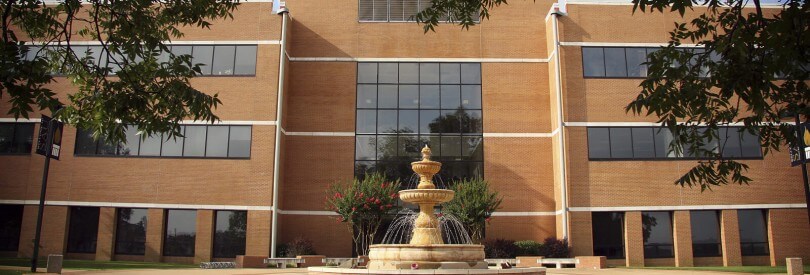
MBA with Supply Chain Management Emphasis Program Requirements (33 Hours)
Core Courses (24 Hours)
• ACCT 6003 – Accounting for Decision Making
• ECON 6003 – Managerial Economics
• FIN 6003 – Managerial Finance
• MGMT 6003 – Strategic Planning & Analysis
• MGMT 6013 – Human Behavior in Organizations
• MGMT 6043 – Business Analytics
• MKTG 6023 – Strategic Marketing
• SCM 6003 – Enterprise Resource Planning
Supply Chain Management Emphasis Courses (9 Hours)
• SCM 6063 – Supply Chain Management
Select 6 hours from the following:
IS 5323 – Information Systems Analysis
IS 6023 – IS Research Project
MGMT 6053 – International Business
MGMT 6101 / MGMT 6102 – International Studies & Field Experience
SCM 6013 – Project Management
SCM 6023 – Supply Chain Sourcing
SCM 6033 – Supply Chain Security
SCM 6053 – Supply Chain 4.0 Technologies
SCM 6063 – Supply Chain Management
SCM 6073 – Special Topics in SCM
SCM 6143 – Sustainable Supply Chain Practices
SCM 6983 – Field Experience in SCM
Admission requirements
- GRE/GMAT: Not required for the MBA with Supply Chain Management Emphasis.
- Degree: Bachelor’s degree from an accredited institution.
- Prereqs for non-business majors (or equivalent undergraduate prep): 3 hrs finance, statistics, marketing, and management/organizational behavior (junior-level or above); 3 hrs microeconomics.
- GPA: Applicants must meet the School of Graduate Studies GPA standard for the MBA.
Additional Pathways
- 4+1 option for eligible SAU undergraduates—including BBA and BBS Engineering students—to earn the BBA/BBS + MBA in approximately five years.
| Department: | |
| Hours Required: | 33 (24 core + 9 emphasis) |
| Categories: | Graduate |
| Completion Time: | 2–3 years at two classes/term (including summer) * |
| Delivery: | Hybrid, On-Campus, Online |
* Based on 2 classes per semester including summer
About the program
The SAU MBA with Supply Chain Management Emphasis is designed for professionals seeking advanced skills in operations, logistics, and supply chain strategy. Offered by the AACSB-accredited David F. Rankin College of Business, the program equips students with practical skills in finance, strategy, analytics, marketing, operations, and supply chain management. Courses are offered online, on campus in evenings, or in a hybrid format to accommodate working professionals. The 33-hour curriculum (24 hours core + 9 hours emphasis) prepares graduates to lead complex supply chain and operational initiatives.
Three key selling points about the program
- AACSB-accredited business school (reaffirmed 2025)
- Flexible format — online, on-campus evenings, or hybrid
- Supply chain focus — graduates gain expertise in logistics, sourcing, and operations strategy
Career outlook
Graduates step into leadership roles such as Supply Chain Manager, Operations Manager, Logistics Analyst, Procurement Specialist, and Business Operations Consultant. The emphasis equips professionals to optimize operations, reduce costs, and improve supply chain efficiency.
Learning Goals
- MBA students will be effective communicators, using information technology to enhance decision making through better communication.
- MBA students are prepared to be socially responsible, effective business leaders with an awareness of cultural and diversity issues and the ability to make ethical decisions.
- MBA students will be critical thinkers who are able to use concepts from strategic management to integrate relevant information, decision-making techniques, and concepts from multiple business disciplines to make decisions in new or unfamiliar circumstances.
- MBA students can effectively and legally access and use information to prepare an effective written report that supports decision making.
- MBA students will be competent in the business discipline.
chief, technology, officer, cto, computer, consultant, information, systems, manager, financial, health, technology, director, investment, banker
